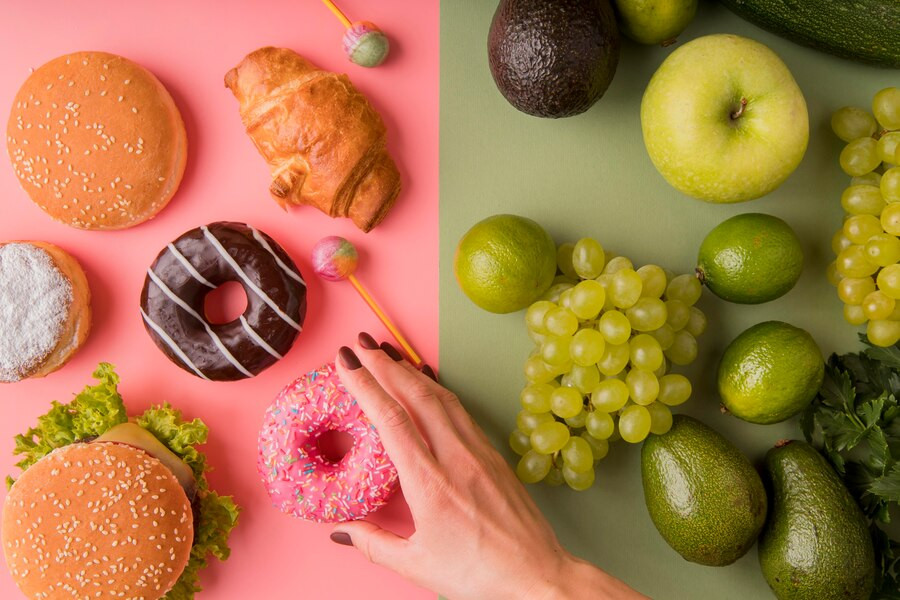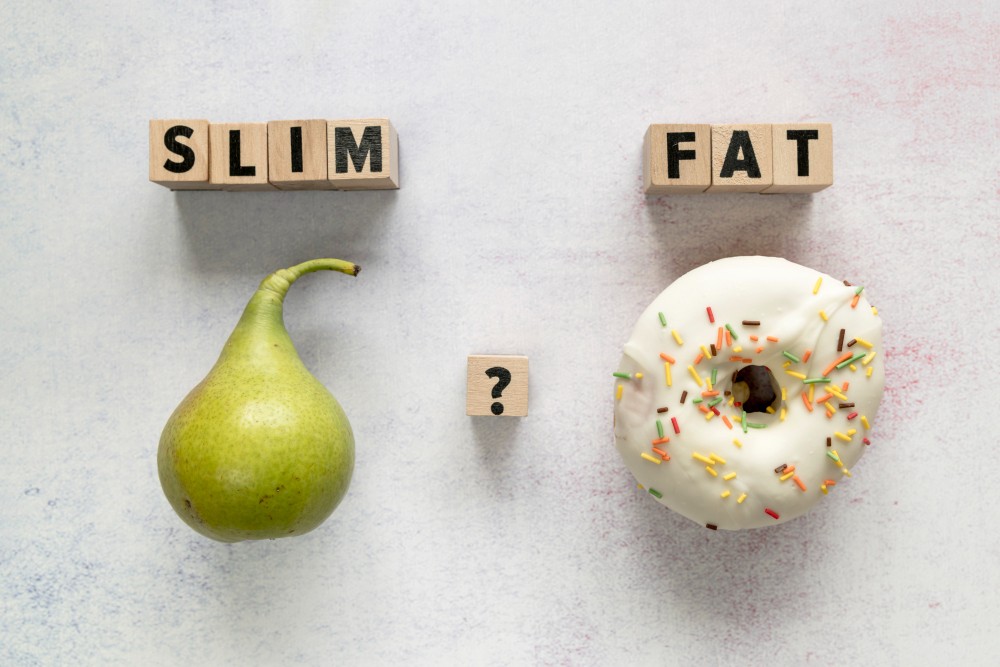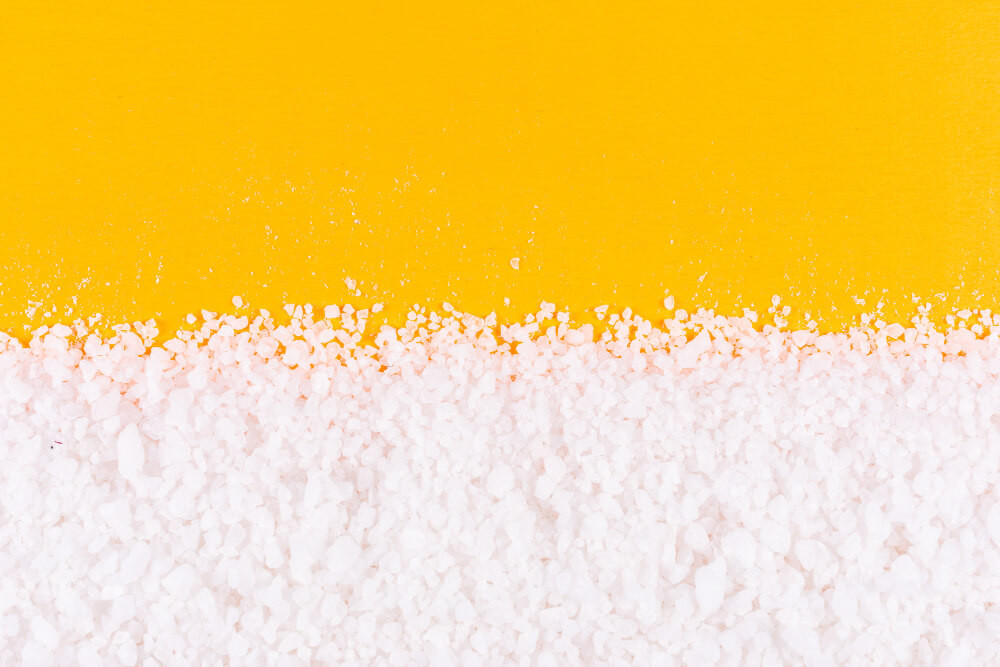Trans fat is the worst type of fat for health. They are formed when liquid oils are converted into solid fats using a process known as partial hydrogenation, which produces partially hydrogenated oils (PHO).
These fats increase the risk of heart disease by raising LDL cholesterol (bad cholesterol) and decreasing HDL cholesterol (good cholesterol). Eating a high-trans fat diet can also cause inflammation, insulin resistance, and impaired endothelial function, all of which contribute to chronic diseases like type 2 diabetes and some kinds of cancer.
Foods that contain trans fat
Animal foods, such as red meat and dairy products, naturally contain small amounts of trans fats, which are generally regarded as less harmful than artificial trans fats. However, you must limit your consumption so as not to overdo it.
Some foods that contain artificial trans fats that need to be avoided include:
- Foods coated in flour and deep-fried include fritters, fried bananas, fried broccoli, flour-fried chicken, and more
- Commercially baked bread products such as cakes, pies, and pastries
- Refrigerated dough like biscuit dough, ready-made pizza, and ready-made pastries
- Packaged processed foods typically contain trans fats to extend shelf life
How to reduce your trans fat intake
You do not have to completely avoid foods containing trans fats. However, reducing their consumption is a wise and practical step that will benefit your health. Here are some methods to help you reduce your daily intake of trans fats:
- Read the food labels
Before purchasing any food, read the nutrition label on the back of the package. Avoid products containing the terms "partially hydrogenated oil" or "partially hydrogenated vegetable oil" in the ingredient list. While the nutrition label may say 0 grams of trans fat, the product may still contain trace amounts of trans fat (less than 0.5 grams per serving).
- Reduce consumption of fried foods
Fried foods frequently contain trans fats, either because of the oil used or because trans fats are formed during the frying process. Look for healthier cooking methods that use less oil, such as baking, boiling, or steaming.
To make healthier meals, fry foods with little or no oil in an air fryer.
- Using healthy oils
When cooking at home, use healthy, non-hydrogenated oils like olive or canola oil. These oils are suitable for sautéing, baking, preparing salad dressings, and baking.
Olive oil contains monounsaturated fats, which can help lower the risk of heart disease. Canola oil contains omega-3 and omega-6 fatty acids, both of which are beneficial to heart health and brain function.
When frying, make sure to always use fresh oil. Make sure not to use oil that has been used previously.
- Limit the consumption of processed foods
Processed foods frequently contain trans fats, as well as added sugar, salt, and preservatives, all of which can have a negative impact on health. Make fruits and vegetables the main snacks. Fresh fruit, raw vegetables, and salads are healthy, trans fat-free options.
If you crave sweets or snacks, try making them yourself with fresh ingredients.
- Replacing margarine with butter
Replacing margarine with butter is another effective way to reduce your trans fat intake. Margarine, particularly partially hydrogenated versions, frequently contains trans fats, which are harmful to heart health. Butter, on the other hand, typically contains saturated fat with little to no trans fat, particularly if made from cow's milk.
Remember, balance is key in a healthy diet. You do not have to completely avoid trans fat-containing foods, but you should consume them wisely. If you have difficulty determining a healthy diet pattern, it is best to consult with a doctor or nutritionist.
If you need medical advice or consultation, you can either visit a doctor or make use of the consultation features that are available in the Ai Care application by downloading the Ai Care application from the App Store or Play Store.
Looking for more information about nutrition, food, and other diet tips? Click here!
- Sean Edbert Lim, MBBS
Anthea Levi, MS, RD (2024). How Much Trans Fat Should You Eat Every Day?. Available from: https://www.health.com/how-much-trans-fat-per-day-8629687
Joe Leech, MS (2023). What Are Trans Fats, and Are They Bad for You?. Available from: https://www.healthline.com/nutrition/why-trans-fats-are-bad
Mayo Clinic (2022). Trans fat is double trouble for heart health. Available from: https://www.mayoclinic.org/diseases-conditions/high-blood-cholesterol/in-depth/trans-fat/art-20046114
Medline Plus (2022). Facts about trans fats. Available from: https://medlineplus.gov/ency/patientinstructions/000786.htm
Kayla McDonnell, RD (2023). Why Are Fried Foods Bad for You?. Available from: https://www.healthline.com/nutrition/why-fried-foods-are-bad
Abbey Ryan (2023). Are air fryers healthy?. Available from: https://www.medicalnewstoday.com/articles/324849
Katherine Zeratsky, R.D., L.D. (2022). Which spread is better for my heart — butter or margarine?. Available from: https://www.mayoclinic.org/healthy-lifestyle/nutrition-and-healthy-eating/expert-answers/butter-vs-margarine/faq-20058152











